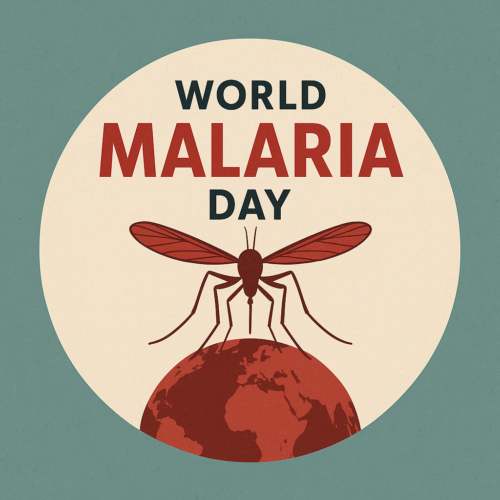CSR Desk, April 25: As the world marks World Malaria Day 2025, India joins global efforts to raise awareness and renew commitment towards eliminating one of the oldest and deadliest diseases known to mankind. Observed every year on April 25, World Malaria Day highlights the need for continued investment and sustained political commitment for malaria prevention and control.
This year’s theme—“Accelerate the fight against malaria for a healthier tomorrow”—emphasizes the urgent need to scale up progress against a disease that still kills over 600,000 people worldwide annually, according to the World Health Organization (WHO). Most of these deaths occur in sub-Saharan Africa, but countries like India continue to face challenges in certain high-risk regions.
A National Health Priority
India has made significant strides in reducing malaria cases over the past two decades. According to the Ministry of Health and Family Welfare, malaria cases in India have dropped by over 80% since 2015, with deaths reduced by more than 90%. This progress aligns with the government’s National Framework for Malaria Elimination (NFME), which aims to eliminate malaria by 2030.
Vulnerable Regions Remain
While states like Gujarat, Tamil Nadu, and Punjab have reported near-zero malaria cases, certain tribal and forested regions in Odisha, Chhattisgarh, Jharkhand, and the North-Eastern states still report seasonal surges.
Dr. Pranati Mishra, a public health expert working in Koraput, Odisha, explains, “The challenge is not just medical—it’s geographical and social. In remote areas, awareness, access, and affordability are critical barriers we must overcome.”
Non-governmental organizations and state governments have ramped up efforts with door-to-door awareness campaigns, distribution of insecticide-treated bed nets, anti-larval measures, and mobile medical units.
Community Stories of Change
In Rishikesh, Uttarakhand, the “Malaria-Free Villages” campaign has shown remarkable success. Villagers are now trained to identify stagnant water sources, clean surroundings, and promote early treatment. School children participate in drawing and essay competitions to raise awareness on mosquito-borne diseases.
One such child, 12-year-old Ayush from Dehradun, said, “I didn’t know a mosquito could be so dangerous. Now I tell my friends and family how to stay safe.”
Global Collaboration and Innovation
On the international front, India continues to collaborate with WHO and organizations like the Global Fund to Fight AIDS, Tuberculosis and Malaria. Research institutions are also investing in vaccine trials, genome mapping of mosquitoes, and innovative vector control strategies.
The recent rollout of R21/Matrix-M, a promising malaria vaccine, is being closely monitored by Indian health authorities for potential future deployment in high-burden districts.
Looking Ahead
As the sun rises on World Malaria Day 2025, health workers, policymakers, researchers, and citizens are reminded that the fight against malaria is far from over—but it is a fight that can be won.
With sustained awareness, timely diagnosis, targeted interventions, and strong community engagement, India can take another leap forward toward a malaria-free future.

